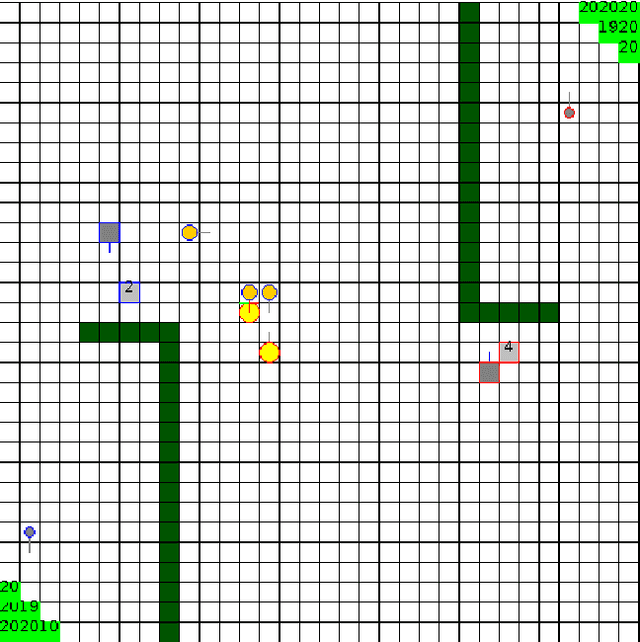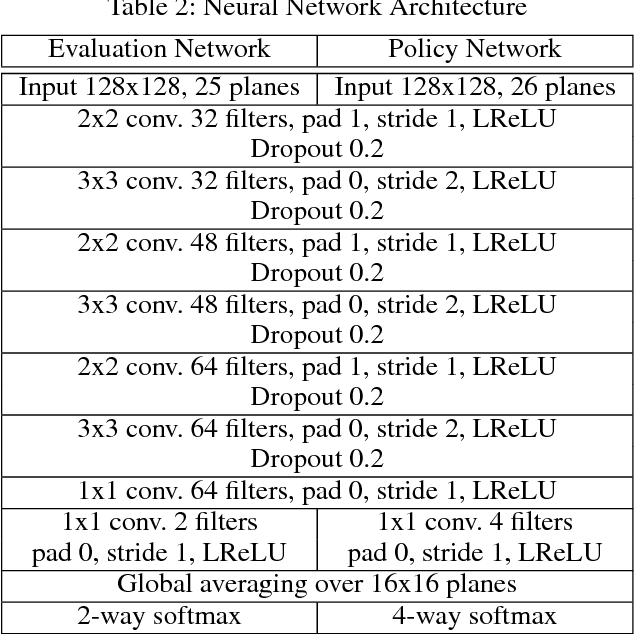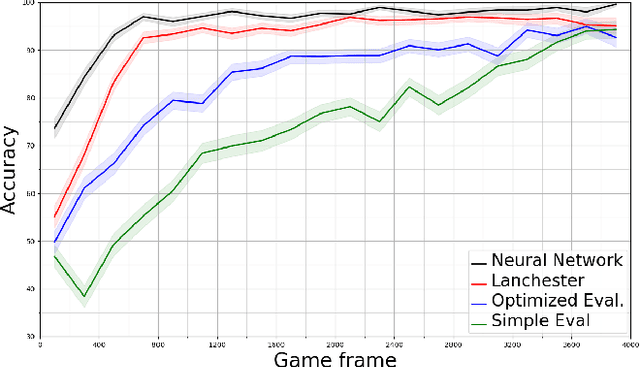Combining Strategic Learning and Tactical Search in Real-Time Strategy Games
Paper and Code
Sep 11, 2017



A commonly used technique for managing AI complexity in real-time strategy (RTS) games is to use action and/or state abstractions. High-level abstractions can often lead to good strategic decision making, but tactical decision quality may suffer due to lost details. A competing method is to sample the search space which often leads to good tactical performance in simple scenarios, but poor high-level planning. We propose to use a deep convolutional neural network (CNN) to select among a limited set of abstract action choices, and to utilize the remaining computation time for game tree search to improve low level tactics. The CNN is trained by supervised learning on game states labelled by Puppet Search, a strategic search algorithm that uses action abstractions. The network is then used to select a script --- an abstract action --- to produce low level actions for all units. Subsequently, the game tree search algorithm improves the tactical actions of a subset of units using a limited view of the game state only considering units close to opponent units. Experiments in the microRTS game show that the combined algorithm results in higher win-rates than either of its two independent components and other state-of-the-art microRTS agents. To the best of our knowledge, this is the first successful application of a convolutional network to play a full RTS game on standard game maps, as previous work has focused on sub-problems, such as combat, or on very small maps.
 Add to Chrome
Add to Chrome Add to Firefox
Add to Firefox Add to Edge
Add to Edge